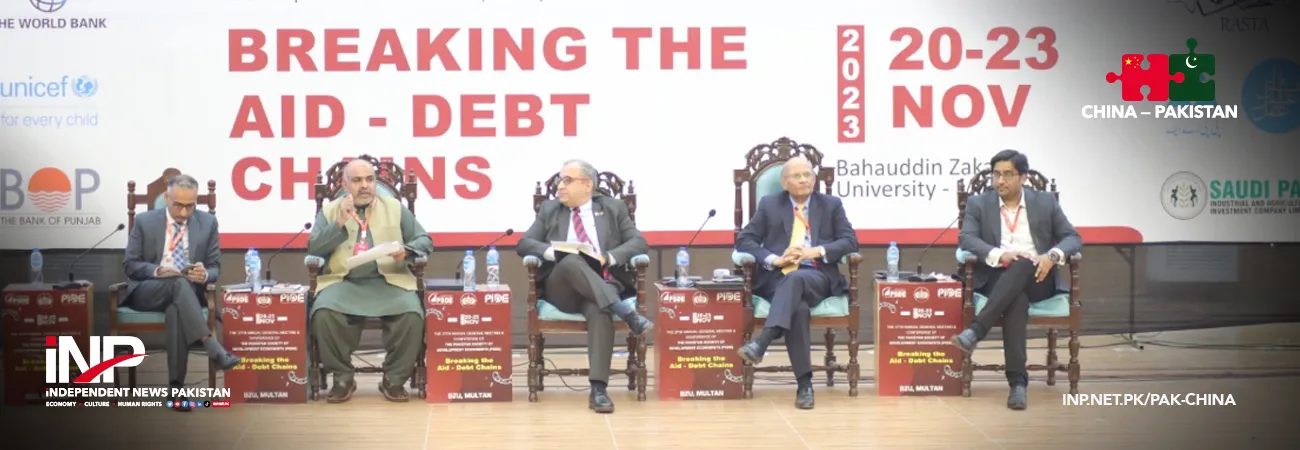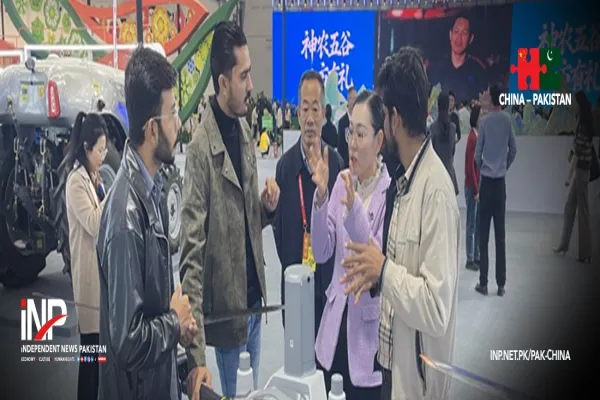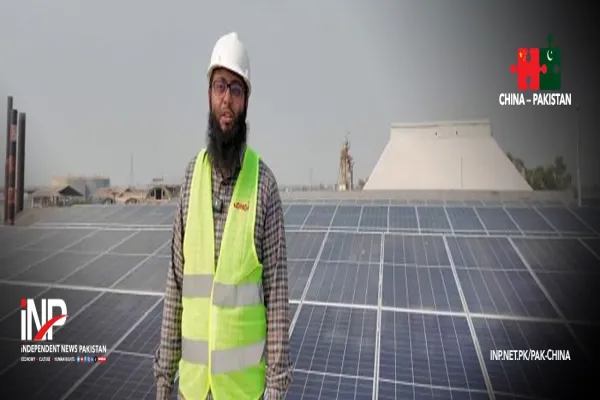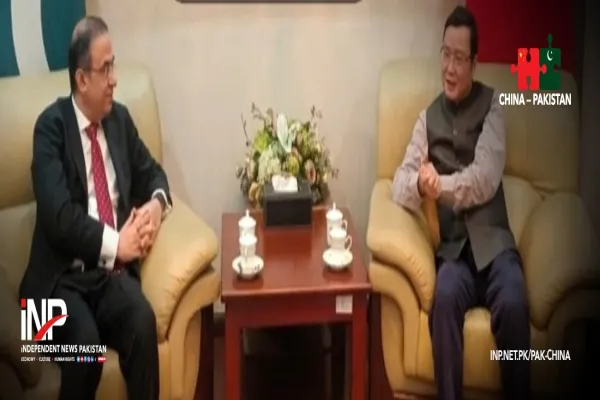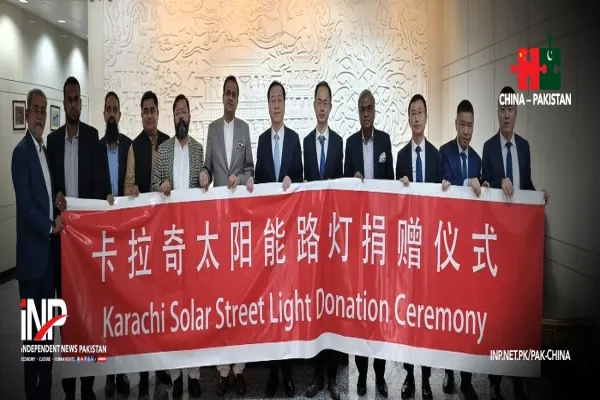i NEWS PAK-CHINA
Today was the second day of the 37th AGM and Conference of the Pakistan Society of Development Economists (PSDE). The Conference on “Breaking the Aid-Debt Chains” is being hosted by the Pakistan Institute of Development Economics (PIDE), in collaboration with Bahauddin Zakariya University, Multan. The second panel discussion of the Conference was on “Is Taxing More the Only Solution?” The session was moderated by Mahmood Khalid, Senior Research Economist at PIDE, while the panelists included Mukaram Jah Ansari, Member Customs, Legal and Accounting at the FBR, Asim Saeed, Former Member at the Planning Commission, Abdul Jalil, Professor at the NDU, and Omer Siddique, Senior Research Economist at PIDE.
In his introduction to the session Dr. Mahmood Khalid, PIDE said that the current focus on taxing more ignores the burden it imposes. Our complex tax system and regulatory landscape contribute to a high regulatory burden. Pakistan ranks low in ease of paying taxes, discouraging firms from growth and formalization. PIDE's approach suggests improving the system first before considering additional taxation.
Mukarram Ansari explained Pakistan's fiscal model, highlighting an annually rising tax collection target given to the FBR. Two-thirds of the collection is from customs and withholding agents. Taxing at the import stage, however, hampers businesses due to restricted cash flow. Asim Saeed questioned the purpose of taxing, i.e., whether it is to cover expenditures or fiscal discipline. He emphasized the weak social contract in Pakistan, urging careful expansion of sovereign revenue. He critiqued the focus on the tax-to-GDP ratio, suggesting attention to direct tax improvement.
Abdul Jalil criticized Pakistan’s projection as a nation of tax thieves, emphasizing the need to build a narrative of growth, and stressed that tax collection does not cause growth, citing China and India’s examples of promoting growth first. Omer Siddique posed the question of whether taxing is a panacea for our ills. He said that even though taxes create distortions and disincentivize economic activity but nevertheless are essential. He highlighted PIDE’s research on the heavy taxation burden on the retail sector.
For charting a way forward Member Customs FBR recommended fixing how FBR works, separating the regulator from the tax collector. Tax policy should focus on promoting growth and investment, not just meeting revenue targets. He urged the digitization of the FBR and provincial taxing authorities and redressal of HR issues. Asim Saeed felt there was a need for a short-term focus on cutting expenditures, reviewing subsidies, and taxing untaxed sectors of the economy. He called for bringing down interest rates and avoiding ad hocism in taxing windfall gains.
Abdul Jalil advocated encouraging transactions and taxing once the economy is moving, aligning with Adam Smith's suggestion, while Omer Siddique urged moving away from anomalies and ad hocism that harm the economy. Dr Nadeem ul Haque, Vice-Chancellor of PIDE, expressed concern that we are already taxing ourselves too much and criticized economists for not making a case for investment and growth beyond advocating for more taxes. Dr Ashfaque H. Khan stressed the role of interest payments in harnessing the deficit.
In another panel discussion “Evaluating Pakistan’s Public Debt Management Policies and Practices” were discussed. The moderator of the panel was Nasir Iqbal, Associate Professor at PIDE, Muhammad Arshad of the Ministry of Commerce, and Nofal Daud, Head Strategy and Strategic Initiatives at the Bank of Punjab.
Haider Ali, Assistant Professor at PIDE, initiated the discussion by highlighting the alarming rise in Pakistan's debt-to-GDP ratio, currently at around 70%, with the potential for further increase. He identified fiscal imbalances, a high exchange rate, and neglect of various borrowing instruments as contributing factors.
Muhammad Arshad shed light on the absence of a formal policy on debt management in Pakistan. He emphasized the fragmented nature of institutions handling debt, with poor coordination among them. Arshad raised concerns about the lack of a legal framework for external public debt, noting the inadequacy of the FRDL Act 2005. He highlighted variations in reported debt amounts due to the absence of a unified definition for debt collection. He concluded that the fragmented nature of the institutions involved lead to inefficiencies in debt management.
Dr Ashfaque H. Khan emphasized the need for a debt office and law to ensure fiscal prudence. He criticized the violation of the law, particularly Article 6. Dr Khan highlighted the power of the debt office, reporting directly to the minister, and noted its weakening after his departure in 2009. In light of this discussion, Nasir Iqbal raised concerns about the disconnect between institutions, including the debt management office, questioning the responsible party for this situation. Muhammad Arshad felt that the current three offices/systems to manage debt were deficient, pointing out severe understaffing and the poor state of the debt information system.
While commenting on the discussion, Dr Nadeem ul Haque questioned the lack of return on debt servicing and criticized the Economic Affairs Division for its vague approach and lack of knowledge about the destination and cost of debts. Arshad stressed the need to categorize and analyze debt sources. Nofal Daud provided a practitioner's perspective, emphasizing the need for local debt management, addressing the crowding-out effect on the private sector, and advocating for a holistic debt management policy. Ashfaque Hassan Khan pointed out the necessity of a roadmap from the finance minister and questioned the lack of public discussion on government violations of debt laws.
Later in the day, three further panel discussions on “Growing Pakistan: FDI, Domestic Investment and Foreign Aid,” “Aid and Development in South Punjab”, and “Understanding the Economy of South Punjab.” The day concluded with the book talk on “Sovereign Debt: A Guide for Economists and Practitioners,” written by Syed Ali Abbas of the IMF. The book talk was moderated by Dr Nadeem Ul Haque, Vice-Chancellor of PIDE.
The cohosts of PSDE’s 37th Annual Conference, organized by PIDE, include the World Bank Group, UNICEF, RASTA, the Bank of Punjab, Pakistan Poverty Alleviation Fund, Saudi Pak Agricultural and Industrial Investment Company, and BZU School of Economics.
Credit: Independent News Pakistan (INP) — Pak-China



